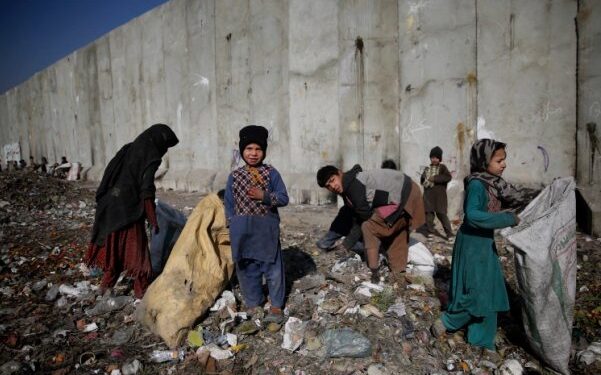“World Food Program” cuts aid to eight million Afghan citizens.
According to the Independent, the World Food Program in Afghanistan has announced that due to the lack of funds, it has been forced to ration and cut its food aid to eight million Afghan citizens.
The World Food Program wrote on its Twitter account that it needs $1 billion to continue operations in Afghanistan, stressing: “The World Food Program is the last resort for the most vulnerable families, including widows and women-headed families.”
Millions of Afghan citizens need urgent humanitarian aid, and the reduction or interruption of foreign aid to Afghanistan will have a severe negative impact on the lives of many of them. Also, a number of families have become dependent on aid organizations due to increasing poverty and unemployment.
Last week, the United Nations World Food Program announced: it is estimated that about 15.3 million people in Afghanistan are facing serious food insecurity.
While about 28 million people in Afghanistan need emergency aid, the agency has reduced the level of assistance to needy families due to a lack of funding.
According to the report of the World Food Program, nearly 2.8 million people in Afghanistan will be at the emergency level of food insecurity. Currently, 3.2 million people across the country are suffering from acute malnutrition.
This institution also noted: Last month, 367 thousand women and children were supported with nutritious food to prevent or treat malnutrition.
Hisaw Wei Lee, the head of the World Food Program in Afghanistan, also announced that this organization does not have the necessary resources for food aid to the people of Afghanistan after October this year.
The World Food Program has estimated that with the current budget, the aid needed for Afghanistan will also decrease from August this year.
After the Taliban came to power in Afghanistan and stopped foreign aid, this country has seen an increase in unemployment and poverty, and the value of the national currency has also decreased drastically. Taliban officials have repeatedly rejected reports and statistics about the level of poverty in Afghanistan. Mullah Abdul Ghani Baradar, the Taliban’s deputy prime minister for economic affairs, has recently accused the media and the West of exaggerating the humanitarian crisis in Afghanistan.
On the other hand, the United States has also blocked 7 billion dollars of foreign currency reserves of the Central Bank of Afghanistan as part of the sanctions against the Taliban. UN human rights experts asked the US government to release the blocked assets of Afghanistan.
Almost two years have passed since the complete withdrawal of the American terrorist forces from Afghanistan and the Taliban taking power, and this country is facing the consequences of two decades of occupation by the Western Axis, including a serious economic and humanitarian crisis.
In 2001, the Western invaders invaded and occupied Afghanistan under the pretext of sheltering Osama bin Laden, the leader of the Al-Qaeda terrorist group, by the Taliban.









